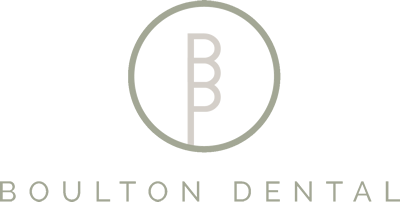Children’s Dentist Newcastle
Your trusted children’s dentist in Newcastle — connect with an amazing dentist at Boulton Dental!
We understand that visiting the dentist can be nerve-wracking for children, especially if it’s their first dental visit. Our dentists and oral health therapists are passionate about children’s dentistry and aim to make your child’s visits a positive experience rather than a chore!
At Boulton Dental, we have a passionate team of Hygienists and Oral Health Therapists that will take excellent care of your children’s teeth. Both are university trained and qualified to treat tooth decay and dental trauma while providing preventative care from your child’s very first visit.
We’ll guide you in the right direction to ensure your child has strong, healthy teeth and gums for life. Contact us to connect with a friendly, experienced children’s dentist in Newcastle today.
Caring for your child’s teeth
Our children’s dentists in Newcastle are committed to providing lifelong dental care for your family, from when their first tooth erupts to regular appointments as adults. Below, we’ve created a quick guide to dental care for all ages.
Babies
Children’s teeth begin forming before birth. The first primary, or baby teeth, erupt through the gums as early as four months, and most children have all their first teeth through by the time they’re three years old.
If you or your family have poor dental health, your child is more at risk, so it’s important to start preventative care early. Until your little one is old enough to form their own dental health routine, there are various things you can do to help them and teach them good dental care habits:
- First appointment: When the first tooth appears or by their first birthday.
- Limit the child’s sugar intake: At around 8-9 months, replace one bottle with a ‘sippy’ cup. If you put your baby to bed with a bottle, make it water, not milk, to ward off ‘bottle caries’. Usually, ensuring they drink enough water will give them adequate fluoride.
- Teething: When your baby is teething, offer them something cold to chew on and gently rub the gums with a clean, moistened cloth.
- Thumb sucking: Not really a problem until after three years old. It is normal for a child to suck their thumb for the first few years.
- Teeth/gum cleaning: Clean their gums and teeth gently with a clean, soft cloth or children’s toothbrush. Use a very thin smear of toothpaste on the brush.
It’s important for your child’s health to establish healthy habits early, and we want to build a positive relationship with your child from the start, ensuring they will learn and keep good dental health habits without fear of the dentist. For the first examination, we encourage you to keep your child on your lap so they feel safe and comfortable.
Early childhood
Tooth decay in young children is a serious dental condition, with nearly 50% of children having decay by six. However, you can help your child keep their teeth long enough for the tooth fairy to come naturally.
Here are a few tips for dental care in early childhood:
- Keep hydrated: Ensure your child drinks enough water so they have adequate fluoride.
- Limit sugar: Limit your child’s sugar intake, including soft drinks, juices, lollies, etc.
- Brushing: Teach your child how to brush properly (and help them brush until they are around eight).
- Thumb or dummy sucking: Once all of your child’s teeth are through, encourage your child to stop thumb or dummy sucking — this practice can push their teeth out of alignment. Generally, positive reinforcement will help your child to get out of the habit.
- Check for signs of decay: Get a copy of the Lift the Lip brochure from our dental surgery. While only your dentist can tell for sure, there are early signs to look out for, like sensitivity to temperature or sweet foods and drinks. At this stage, we can prevent tooth decay without drilling.
Teenagers
Between school, sports, friends, shopping and texting, there isn’t much time for teenagers to think about their teeth (and let’s not mention their preferred diet of junk food and sweet drinks). Some teens also find it hard to listen to or understand your requests, like brushing their teeth morning and night.
Here are a few tips tip help your child get through the teen years cavity-free:
- Appeal to their vanity: Explain that bad oral health and hygiene can lead to stains, bad breath (halitosis) and missing teeth.
- Set a good example. If you take care of your teeth, your teen will see that good oral hygiene is important to you. Encourage brushing at least twice a day and flossing daily.
- Brush well around the braces: If your teen has braces, make sure they brush well and use floss to remove all food particles. Remember: the risk of tooth decay is higher with braces. With this in mind, we recommend professional teeth cleaning every three months.
- Healthy snacks: Keep lots of fruits and vegetables around for snacking, limit junk food and discourage “grazing”.
- Mouthguards: If your child plays sports, encourage them to wear a mouthguard to protect their teeth.
- Sealants: Consider having sealants applied to your teen’s teeth. Sealants are made of plastic and are bonded to the teeth, providing the highest level of protection for vulnerable back teeth and their deep grooves.
Our paediatric dentists offer care under the Child Dental Benefits Schedule (CDBS)
The Child Dental Benefits Schedule (CDBS) commenced on 1 January 2014 and provides access to basic dental services to around 3.4 million children aged 2-17. It replaces the existing Medicare Teen Dental Plan (MTDP). Your child may be eligible to receive up to $1000 over two years in benefits.
Learn more about the Child Dental Benefits Schedule.
